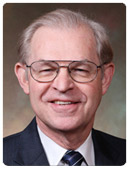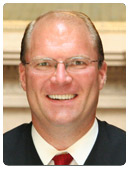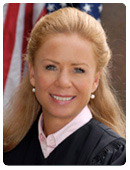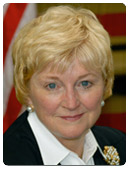Submitted by Brendan Fischer on
The Wisconsin Supreme Court could decide the future of the criminal investigation into Governor Scott Walker and independent electoral groups, but some of the justices are faced with a significant conflict of interest: two of the groups under investigation have been the dominant spenders in Wisconsin Supreme Court elections in recent years, spending over $10 million to elect the Court's Republican majority.
Wisconsin Club for Growth (WiCFG) and Wisconsin Manufacturers & Commerce (WMC) played a key role in electing the four justices in the majority, in most cases spending more than the candidates themselves.
A bipartisan group of prosecutors allege that the Walker campaign illegally coordinated fundraising and expenditures with WiCFG and WMC (and perhaps other groups) during the 2011 and 2012 recall elections. Representatives of the Walker campaign, WiCFG, and WMC could face criminal liability if prosecutors find that they conspired to evade campaign finance disclosure requirements and contribution limits.
"It would strongly serve the public's confidence in courts for the justices to step aside," said Matthew Menendez, counsel at the Brennan Center for Justice, "in a case directly implicating the same groups that spent massive amounts of money supporting their election."
Last month, the 7th Circuit threw out a federal challenge to the investigation and declared that the matter should be resolved by state courts. The probe is currently on hold, and the Wisconsin Supreme Court has been asked to determine whether the investigation into Walker, WiCFG, WMC and others can more forward.
In every single one of the most recent elections for the court's four Republican justices -- Justices David Prosser, Michael Gableman, Annette Ziegler, and Patience Roggensack -- spending by WiCFG, its surrogates, and WMC amounted to almost all of the independent support for the candidate. Together, the two groups and their surrogates have spent over $10 million since 2007 helping elect the court's four-justice conservative majority, in most cases spending more than the candidates themselves. Some of the elections were decided by just a handful of votes.
The total spent by the groups under investigation is higher than previously estimated, based on new documents obtained from WMC.
Possible Criminal Liability for Same Groups That Spent Millions Electing Justices
In Wisconsin, the decision to recuse rests solely with the justices themselves. Yet recusal is about more than a justice's subjective assessment of their own bias, Menendez told the Center for Media and Democracy; it is also an objective question of whether a reasonable person would question the court's impartiality. Ultimately, recusal standards are about protecting the public's trust in the judiciary, he said.
According to data from the Wisconsin Democracy Campaign, WiCFG spent at least $1,770,000 on the last four Supreme Court races, and a group it entirely funded spent $985,000 more. WMC has spent at least $7.25 million electing the court's conservative majority, based on its own estimates. In three out of the four Supreme Court races since 2007 where WMC has been active, it alone has spent more than the candidate it supported.
Some have expressed concern that the Court couldn't function if justices had to recuse from all cases that might affect their contributors. Yet, it is a different story when a judge effectively owes his or her reelection to the same groups facing criminal liability, Menendez said.
"We're not talking about a few hundred or a few thousand in contributions," said Menendez. "This is orders of magnitude greater than that. This is massive amounts of spending."
Plus, the case is distinguishable from other litigation that might only indirectly affect a judge's electoral supporters, such as a civil justice matter that WMC's members are concerned about, or a case that might have an indirect impact on the interests of a WiCFG donor.
This probe involves criminal liability for precisely the same organizations that put these justices on the bench.
WMC Drafted Weak Recusal Rules, But Due Process Could Require Justices Step Aside
The Wisconsin Supreme Court has grown notorious for its lax recusal practices.
In 2010, the Wisconsin Supreme Court's four-justice conservative majority voted to adopt new rules stating that the fact of a campaign contribution alone would not require recusal -- but the rules were literally written by none other than WMC, as well as the Wisconsin Realtors Association, which gave over $1 million to Wisconsin Club for Growth in its 2010-2011 fiscal year.
In other words, WMC wrote the rules requiring that the justices WMC has elected not recuse in a case involving WMC's election activities.
The fact that WMC wrote the recusal rules "increase[s] the likelihood that a reasonable person would reasonably doubt the impartiality of several of the justices in considering charges against their supporters," Menendez says.
Yet, the Wisconsin Supreme Court's WMC-drafted rules may not be the final word on the matter. The level of spending by the groups in this case -- and their direct stake in the outcome -- could demand recusal under the U.S. Constitution, following the 2009 U.S. Supreme Court decision in Caperton v. Massey.
In that case, the U.S. Supreme Court held that a West Virginia Supreme Court justice should have recused himself from a case involving Massey Coal, after the Justice received $3 million in campaign support from the company's President & CEO, Don Blankenship. Blankenship had given $2.5 million to a PAC supporting the justice, and spent another $500,000 on independent expenditures.
"In an election decided by fewer than 50,000 votes, Blankenship's campaign contributions -- compared to the total amount contributed to the campaign, as well as the total amount spent in the election -- had a significant and disproportionate influence on the outcome," the Court wrote, also noting that the donations were given shortly in advance of the case appearing before the court. "And the risk that Blankenship's influence engendered actual bias is sufficiently substantial that it 'must be forbidden if the guarantee of due process is to be adequately implemented.'"
The facts in that case echo those facing some justices on the Wisconsin Supreme Court:
Justice David Prosser
 In 2011, Justice Prosser narrowly won reelection by just 7,000 votes, in a race widely viewed as a referendum on Governor Walker's controversial union-busting legislation. Prosser's campaign spent only $700,000. WMC spent $2 million helping reelect Prosser, according to its own numbers. A new front group, Citizens for a Strong America, came out of nowhere and spent $985,000 backing Prosser and attacking his opponent. Donations to the group were not disclosed and it was only discovered years later that the group was entirely funded by Wisconsin Club for Growth. Wisconsin Club for Growth itself spent an estimated $520,000 supporting Prosser.
In 2011, Justice Prosser narrowly won reelection by just 7,000 votes, in a race widely viewed as a referendum on Governor Walker's controversial union-busting legislation. Prosser's campaign spent only $700,000. WMC spent $2 million helping reelect Prosser, according to its own numbers. A new front group, Citizens for a Strong America, came out of nowhere and spent $985,000 backing Prosser and attacking his opponent. Donations to the group were not disclosed and it was only discovered years later that the group was entirely funded by Wisconsin Club for Growth. Wisconsin Club for Growth itself spent an estimated $520,000 supporting Prosser.
Together those groups spent five times as much as the Prosser campaign, in an election decided by just 7,000 votes. All of their spending was undisclosed "dark money."
Notably, a letter later obtained through an open records request showed Justice Prosser thanking a GOP donor who worked on his campaign, telling him that "the coordination you provided with organizations outside the Republican Party [was] absolutely indispensable." The same donor boasted to Governor Walker's office about his efforts to "get very creative with diverse State and National organizations to help [Prosser's] campaign due to being financially capped at $300,000." Some have read the email as suggesting coordination between Prosser's campaign and independent groups -- an issue whose legality the Wisconsin Supreme Court will be asked to resolve.
Justice Michael Gableman
 Justice Gableman won his 2008 election by around 20,000 votes. The Gableman campaign spent only $411,000 -- but WMC spent $2.25 million in undisclosed dark money getting Gableman elected, nearly five-and-a-half times as much as the justice's own campaign, according to WMC's own numbers.
Justice Gableman won his 2008 election by around 20,000 votes. The Gableman campaign spent only $411,000 -- but WMC spent $2.25 million in undisclosed dark money getting Gableman elected, nearly five-and-a-half times as much as the justice's own campaign, according to WMC's own numbers.
Wisconsin Club for Growth also surpassed Gableman's spending, dropping over $500,000 in undisclosed spending to help put the justice on the bench. Another phony issue ad group, Coalition for America's Families, which received funding from Wisconsin Club for Growth and shared a board member, spent $480,000 supporting Gableman that year.
Justice Annette Ziegler
 The 2007 elections marked a turning point for big money in judicial races. Justice Ziegler's campaign spent $1.4 million. WMC made an eye-popping $2.5 million in undisclosed expenditures supporting Justice Ziegler's campaign, according to its own numbers, making it the biggest spender in the race. Wisconsin Club for Growth added $400,000 in dark money. Together they more than doubled the amount spent by Ziegler's own campaign.
The 2007 elections marked a turning point for big money in judicial races. Justice Ziegler's campaign spent $1.4 million. WMC made an eye-popping $2.5 million in undisclosed expenditures supporting Justice Ziegler's campaign, according to its own numbers, making it the biggest spender in the race. Wisconsin Club for Growth added $400,000 in dark money. Together they more than doubled the amount spent by Ziegler's own campaign.
Ziegler faced ethics charges from the Judicial Commission in 2007, for failing as a circuit court judge to recuse herself from cases involving a bank whose board included her husband. The Supreme Court had the final word on the matter -- after Ziegler had been elected to the court -- and issued the first public reprimand of a fellow justice in the court's history, calling her failure to recuse "serious," "inexcusable," and a "bright-line" violation of judicial ethics, although many viewed it as a slap on the wrist.
Justice Patience Roggensack
 In last year's Supreme Court race, WMC spent an estimated $500,000 supporting Justice Roggensack's reelection, and Wisconsin Club for Growth spent $350,000. Together they outspent the $652,318 spent by the justice's own campaign.
In last year's Supreme Court race, WMC spent an estimated $500,000 supporting Justice Roggensack's reelection, and Wisconsin Club for Growth spent $350,000. Together they outspent the $652,318 spent by the justice's own campaign.
WMC issued a special Supreme Court edition of its "Business Voice" magazine in advance of the election, with page after page warning that if Roggensack were to lose, "all of the reforms of Governor Scott Walker and the business community would hang in the balance." WMC's president described the group's efforts to "elect 'strict constructionist' judges to the high court," and Justice Ziegler penned an op-ed endorsing Roggensack.
Multiple Cases before Supreme Court
If the four Republican justices step aside, they would lack the four-judge quorum needed to hear the case. Unlike most other states, Wisconsin does not have a mechanism for substituting retired jurists or court of appeals judges for justices who recuse themselves. That means that any decision by the Wisconsin Court of Appeals would be the last word.
There are at least four chances for the Wisconsin Supreme Court to decide the future of the investigation.
The major case is prosecutors' appeal of an order from January quashing subpoenas issued to WiCFG, WMC, the Walker campaign, and Citizens for a Strong America. The Wisconsin Court of Appeals has been asked to review the decision, and the Walker campaign and two unnamed parties asked the Supreme Court to bypass the appellate court and take the case directly. If the Supreme Court declines the Walker campaign's request, the case could still arrive before the state's highest court on appeal from the Court of Appeals.
Separately, in February, unnamed parties filed a different challenge to the probe directly with the Wisconsin Supreme Court. If the Court doesn't accept their petition -- which was filed under seal -- it will end there.
Additionally, last November three unnamed parties asked a Wisconsin appellate court to halt the case on procedural grounds, which that court declined to do; an appeal is now pending before the Wisconsin Supreme Court. If the Supreme Court declines the case, the challenge will end.
WiCFG has also filed another lawsuit in Waukesha County alleging that the Government Accountability Board should not have been involved in the investigation. That case could eventually be appealed up to the Supreme Court.
In each of those four cases, the four Republican justices will be presented with an opportunity to end a criminal investigation into the groups that elected them to the bench.
Sharp Rise in Spending on Judicial Elections Creates Opportunity for Conflict
The conflict facing the justices "is another example of the corrosive influence of spending" on judicial elections, Menendez told CMD.
This is a new problem. Wisconsin Supreme Court elections were relatively sleepy affairs until WMC went all-in on Justice Ziegler's election in 2007, and the elections have been dominated by big money ever since.
The increase in spending on judicial races -- and the accompanying conflicts for some justices -- is part of a national trend. Judicial elections cost $56 million in the 2011-2012 election cycle, according to a report from Justice At Stake, the Brennan Center, and the National Institute on Money in State Politics.
The question of recusal in the current case "is the bitter harvest of a system where judges have to raise huge sums from parties who appear before them, and wealthy interest groups are spending millions to capture the courts," said Bert Brandenburg, Executive Director of Justice at Stake.
| Attachment | Size |
|---|---|
| 233 KB | |
| 8.64 MB |

Comments
Anonymous replied on Permalink
Go back to the Soviet Union